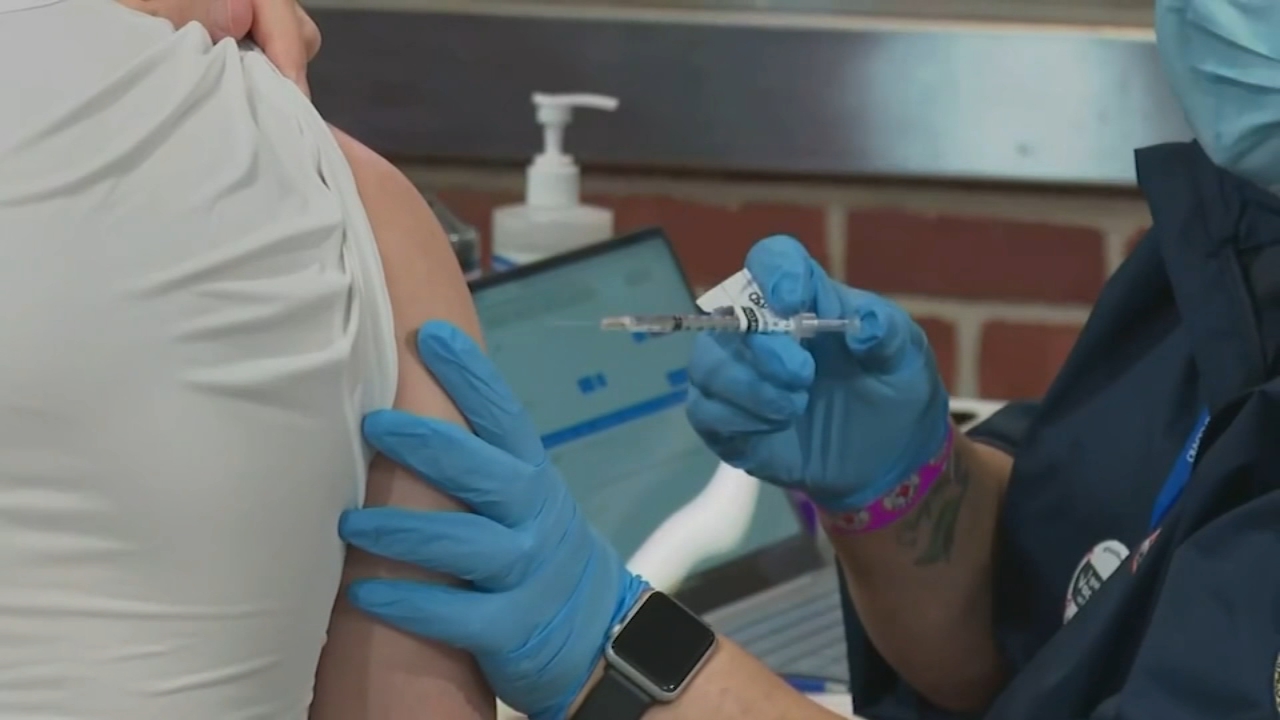Vaccine trackers: Bay Area company monitors side effects, adverse reactions for future safety
As the vaccinations get underway, data will be collected to track granular details, such as adverse reactions and which vaccine a patient received and when. This will help with future vaccine development.


SAN FRANCISCO (KGO) -- The long-awaited rollout of coronavirus vaccines has heightened anticipation of slowing the pandemic. Even as immunizations have begun, more clinical trials will continue to bring more vaccines to market. A Bay Area company is behind that effort.
RELATED: Building a Better Bay Area: Vaccine Watch
Headlands Research was involved in the clinical trials for the Pfizer and Moderna vaccines, but their work is far from over.
"We need hopefully three to four if not more of those to succeed if we're going to really try to get across the whole global population as fast as we can," said CEO Mark Blumling.
Headlands is also working with Johnson & Johnson and with AstraZeneca. Both pharmaceutical companies have large-scale trials underway, possibly involving 30,000 people, that will wrap up sometime in January and early February.
VIDEO: Should a 'vaccine passport' be required?

Most of Headlands' trial sites are in the South, and that's important to researchers to have access to patients who come from diverse backgrounds.
COVID-19 has disproportionately infected and claimed the lives of members of ethnic and racial minority groups.
"We had sites in Texas and Louisiana. We had 90 percent Latinx population across one of the trials in Moderna and in excess of 40 percent African American at our Atlanta site, and that's really important for the trials that we get that diversity enrollment," said Blumling.
Such enrollment in the clinical trials could address concerns about vaccine safety or their efficacy.
RELATED: Are strong reactions to COVID-19 vaccine actually a good thing? Doctors explain
As the vaccinations get underway, data will be collected to track granular details, such as adverse reactions and which vaccine a patient received and when. This will help with future vaccine development.
It's made possible because each vaccine has a tracker.
"You can make sure who's gotten the vaccine, make sure they have a follow-up," Blumling said. "A lot of this is done being done electronically, and when you're trying to vaccinate 320 million people ideally across the United States, you can't really do it on a paper format."
By the end of the trials, it's estimated as many as 164,000 Americans will have participated.
If you have a question or comment about the COVID-19 vaccine, submit via the form below or here.
Get the latest news, information and videos about the novel coronavirus pandemic here
RELATED STORIES & VIDEOS:
- Map: CA counties that can, can't reopen under new rules
- COVID-19 risk calculator: The safest and most dangerous things to do this holiday season
- Updated number of COVID-19 deaths, cases in Bay Area
- COVID-19 Help: Comprehensive list of resources, information
- California EDD: The most commonly asked questions we get about unemployment and PUA
- Health experts urge flu shots in effort to avoid 'twindemic'
- How to tell the difference between seasonal allergies and coronavirus symptoms
- Here's which mask is better to protect from COVID-19
- First COVID-19 vaccine volunteers in US describe experience as Bay Area launches vaccine trials
- From salons to dinner parties: Experts rate the risk of 12 activities
- Coronavirus origin: Where did COVID-19 come from?
- What is a COVID-19 genetic, antigen and antibody test?
- What will it take to get a COVID-19 vaccine and how will it be made?
- What does COVID-19 do to your body and why does it spread so easily?
- Here's how shelter in place, stay at home orders can slow spread of COVID-19
- Coronavirus Timeline: Tracking major moments of COVID-19 pandemic in San Francisco Bay Area
- COVID-19 Diaries: Personal stories of Bay Area residents during novel coronavirus pandemic
- Coronavirus Doctor's Note: Dr. Alok Patel gives his insight into COVID-19 pandemic








